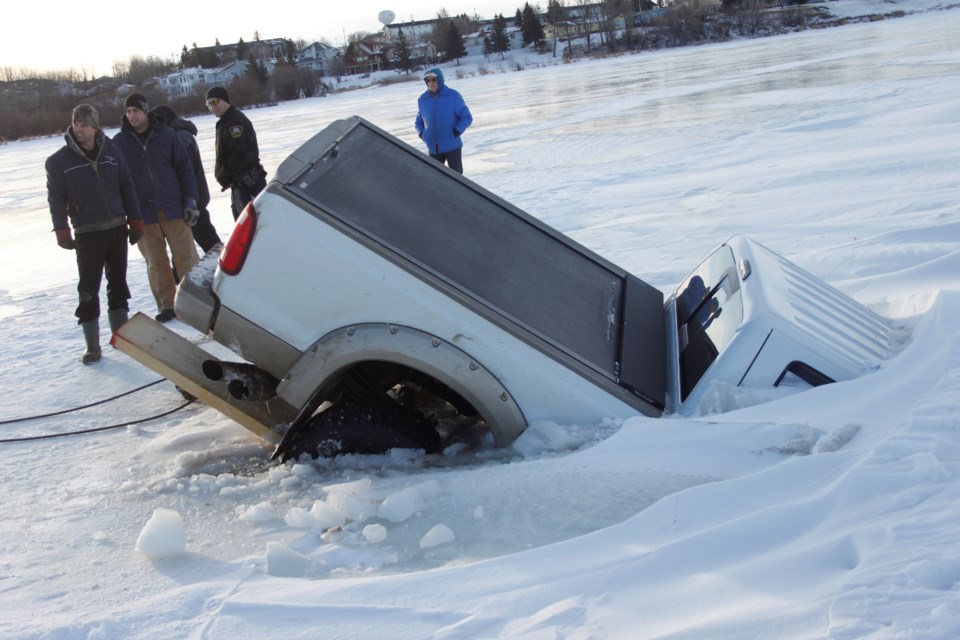On March 17, Lac La Biche County Fire Rescue Services and RCMP responded to an incident involving a vehicle going through the ice on Whitefish Lake, about 20 kilometres southeast of Kikino. It was the first of two similar incidents — neither with injuries reported — just days apart on Lakeland-area lakes.
According to John Kokotilo, the regional fire chief for Lac La Biche County, four people had driven onto Whitefish Lake in a pickup truck for a morning of ice fishing. Not long after they got to a fishing spot, the ice began to break under the weight of the truck. In moments, the truck was half submerged. No one was inside the vehicle, and calls were made to emergency crews for assistance.The Lac La Biche Fire Services have mutual aid agreements with several communities around the municipality and used their ice-rescue gear and trained staff to assist with the call. Emergency crews were dispatched just after 11 that morning. Lac La Biche Fire Services responded with the St. Paul and Saddle Lake RCMP.
When crews arrived, the four people had moved clear of the vehicle.
Kokotilo said that despite average ice thickness on area water bodies being well over two-feet — enough to support much heavier loads — ice thickness and strength is often not uniform in all areas. In this case, he says there is an “unknown cause at this time with respect to why the ice was particularly weak and caused the truck to go through.”
Another breakthrough
Just days after the call to Whitefish Lake, local emergency crews were alerted to another report of a vehicle going through the ice, this time near Poplar Point on the north side of Lac la Biche Lake. In that instance, Kokotilo said, fire crews didn’t attend as members of the public had safely pulled the vehicle from the water.
There were no injuries reported in that incident and no report of damage to the vehicle.
As the colder days move into warmer spring weather, Kokotilo is reminding those venturing out onto the ice to use extreme caution. He says the standard time for ice-travelers to wind down their activity usually coincides with the March 31 end of the annual ice fishing season. This year, however, an "unusually” mild winter, and limited snowfall, may have sped up the melting and deterioration of ice cover across the region.
“As you can see from these incidents, caution has to be taken,” he said.




